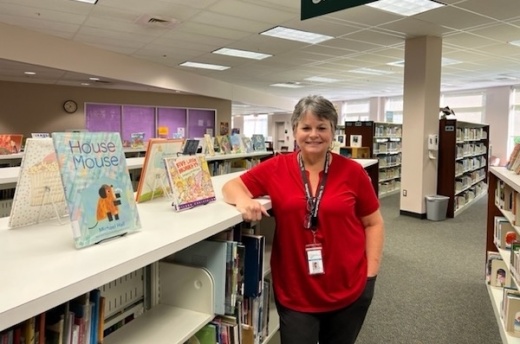How do you plan to ensure and expand access to library content to people or communities who might not be near a library?
Prior to me taking this position, the Montgomery County Memorial Library System had already started taking steps in that direction. One of the things that the library offers is the Little Free Libraries. ... You place them throughout the community, and you keep them stocked with books ... and people just go and they can take what they want, they can bring it back, ... they can replace it with something that they have. ... I would also like to consider—and I don’t know the feasibility—partnering with schools. Because community members know where their schools are. So if we could figure out a way to let them put materials on hold, and then if we could figure out how to get those materials to the schools, then all they would need to do would be to get to the schools to pick up their materials, and then they could also return them there.
It is just going to involve figuring out the logistics and the finances behind making that happen. ... One of the things that I would like to do is survey the community and find out the sorts of things that they’d like to see come to the library that we don’t currently offer.
What are ideas on making the library a more accessible community resource center?
One of the things that I would like to do ... is talk to social workers and see if we can partner with some to come in and be here for people and help them fill out paperwork for food stamps, paperwork for Medicaid. Have literature that shows where the homeless shelters are, where the food banks are, where the free meals are. I think that’s a need in our community. Maybe not in every branch, but certainly at some of the branches. ...
And people are comfortable going to libraries because they’ve known libraries their whole lives. You walk into school your first day in elementary school, and there’s a library there. So it’s very natural, I think, for people to feel comfortable going to public libraries because it’s just comfortable. So if we can bring services to the library that they would normally have to seek out elsewhere, I think that will be beneficial.
In light of Banned Books Week in late September, how will you approach discussions on material under challenge in the library?
Fortunately, we have a policy in place that addresses those. And we will just like we have in the past: always follow that policy. Anybody can challenge material. It is their right to challenge the material.
It is our job to follow the policy that the library and the county has in place to review those materials.
We have committees that are formed. And the committee reads the book. They meet; they discuss it; reviews from professional journals are brought into the mix. And then we look at it, and we see if it meets our material selections. And the committee makes a recommendation, and then from there, we let the person who has challenged the material know what the recommendation is. So we have that policy in place for a reason. And it’s my plan to continue to use it as it was written.





